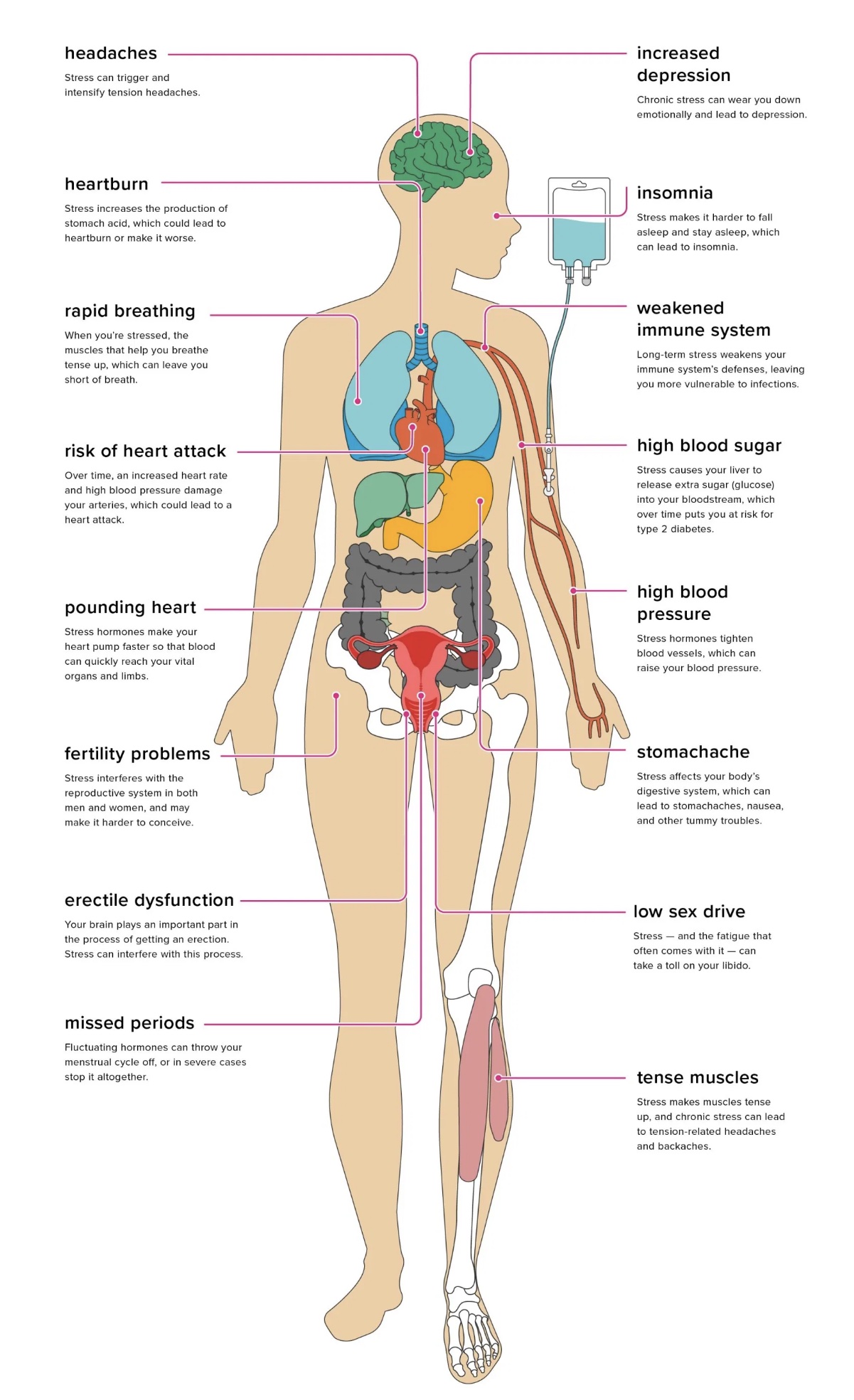Is Stress Shrinking Your Brain?

The "brain dangers" of de-prioritizing yourself—and what to do about it
Between work, your family, and the other priorities in your life, some days you might feel like your “tank is on empty,” with no energy left to take care of yourself.
But when you make a habit of running on fumes, you can create some real problems for
yourself—like weakening your immune system, slowing your body’s healing processes, or even triggering premature aging. And unfortunately, as these problems add up, you can become more vulnerable to chronic disease.
Today, I want to tell you about how you can break the low-energy cycle, restore your vitality, and help rejuvenate both your body and mind.
The hidden hazards of wasting energy
One of the major issues with our modern way of life is that it’s extremely easy to waste precious energy without even realizing it!
To put it into perspective, there are 1,440 minutes in a day.
And if you sleep the recommended seven hours a night, that leaves you with about 1,000
waking minutes to make the best use of your time and energy.
Of course, some of the things you spend energy on provide a “return on investment”—like working to earn a paycheck.
And other activities like spending time with an old friend, taking a trip, or enjoying a healthy lunch are also positive uses of your energy (in fact, they can even give you a much-needed “recharge”).
On the other hand, there are some things people often spend time—and energy—doing that offer little benefit.
Here are a few examples I often see (and have done myself!):
- Complaining and surrounding yourself with negativity.
-
Constantly talking about what you’re going to do, rather than actually doing it.
-
Worrying incessantly without taking action or pursuing a solution.
-
Getting caught up in situations that don’t involve you.
- Judging, arguing with, or comparing yourself to others on social media.
Not only are these common behaviors a waste of your precious energy, but they also lead to what might be the biggest, most dangerous energy-sapper there is…
I’m talking about chronic stress.
Chronic stress leeches your body’s healing reserves
Of course, it’s natural to feel some level of stress every so often.
But if you persistently feel on edge, worry constantly, have trouble relaxing, often feel
overwhelmed, or have trouble sleeping most nights, you might be stuck in a vicious cycle of chronic stress.
And, left unchecked, chronic stress can cause some serious damage throughout your body. Refer to the chart below for just a few examples:
The whole-body effects of stress

IMAGE SOURCE: Healthline.com
I compare the effects of chronic stress to jogging non-stop for hours and hours on end.
Eventually, you become so fatigued and low on resources that your body just gives out.
And that’s how the cycle begins…
You see, chronic stress requires your body to constantly utilize its valuable (and finite) energy. That’s because your body tends to direct its energy to the most immediate threats to your well-being. And for many of us, that’s stress.
And the longer chronic stress persists, the less energy your body has available for things like rejuvenation and healing. Compounding this problem further is the fact that chronic stress also leads to excess cortisol—your body’s stress hormone.
Excess cortisol is aging you faster
When you experience constant high-stress, your body responds by producing an
overabundance of cortisol—yet another way chronic stress impedes your body’s ability to heal.
And while cortisol plays an important role in keeping you healthy by doing things like regulating blood sugar and metabolism, too much of it can do some scary things to your body.
When levels of cortisol are too high, it can cause your immune system to attack your organs and tissues. And according to one 2018 study, too much can also kill brain cells.
In this study, researchers measured cortisol levels in more than 2,200 healthy middle-aged people. The researchers conducted brain imaging, administered memory tests, and assessed thinking skills.
What they discovered was that those who had higher levels of cortisol, particularly women, scored lower on memory and cognitive tests.
These same women also showed reductions in their brain volume over time. Stress was literally shrinking their brains!
Why your "go-to" ways of coping could be doing your harm
To make matters worse, when we actually recognize that we’re feeling stressed, many of us turn to a few seemingly harmless activities to help us relax or blow off steam. Things like:
- Shopping
- Having a beer, glass of wine, or cocktail
- Snacking
- Mindless scrolling on our smartphones
- “Numbing out” in front of the TV
The problem is, none of these types of activities burn off cortisol. In some cases, they can cause your body to produce even more!
So what can you do?
Two sure-fire ways to de-stress
The best ways to de-stress, burn off excess cortisol, and replenish your energy stores safely and naturally are to move your body and do deep-breathing exercises.
To get you started, I’m sharing two helpful guides I put together, complete with exercises
designed to burn off cortisol and promote healing.
The stress-relieving benefits of walking
Breathe yourself calm in five minutes or less
Remember, the choices you make each day can really add up. Be sure to carve out some time for yourself on a regular basis… all you need are a few minutes.
Think about it this way…
Each moment is an opportunity to replenish your body’s energy supply and increase your
healing potential.
How will you invest your next 1,000 minutes?
Be Well,
Jim Donovan, M.Ed.
Why miss out on a single article when you can get them delivered straight to your inbox for free?
SOURCES:
Echouffo-Tcheugui, J. et al. (2018). Circulating cortisol and cognitive and structural brain measures: The
Framingham Heart Study. Neurology. 91(21). Retrieved from: n.neurology.org/content/91/21/e1961
Rabasa, C. and Dickson, S. (2016). Impact of stress on metabolism and energy balance. Current Opinion
in Behavioral Sciences. 9: pp. 71 – 77. Retrieved from:
sciencedirect.com/science/article/pii/S2352154616300183
IMAGE SOURCE:
nrdc.org/stories/keep-your-devices-wasting-energy-and-money
healthline.com/health/stress/effects-on-body#1
The material provided on this site is for educational purposes only and any recommendations are not intended to replace the advice of your physician. You are encouraged to seek advice from a competent medical professional regarding the applicability of any recommendations with regard to your symptoms or condition.
Copyright © 2021 by Blue Beat Media. Thank you for your interest in Jim Donovan. We do not allow republication of our full newsletters and articles. However, you can post a portion (no more than 90 words, 1-2 paragraphs) of our content with a live link back to our homepage, donovanhealth.com, or a link to the specific article you are quoting from.


